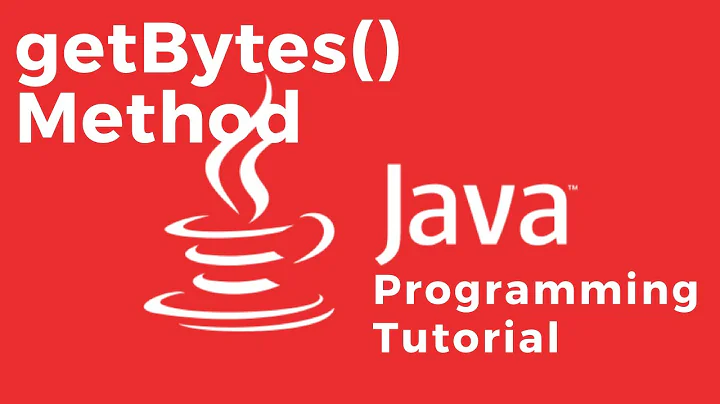Best way to find position in the Stream where given byte sequence starts
Solution 1
I've reached this solution.
I did some benchmarks with an ASCII file that was 3.050 KB and 38803 lines.
With a search byte array of 22 bytes in the last line of the file I've got the result in about 2.28 seconds (in a slow/old machine).
public static long FindPosition(Stream stream, byte[] byteSequence)
{
if (byteSequence.Length > stream.Length)
return -1;
byte[] buffer = new byte[byteSequence.Length];
using (BufferedStream bufStream = new BufferedStream(stream, byteSequence.Length))
{
int i;
while ((i = bufStream.Read(buffer, 0, byteSequence.Length)) == byteSequence.Length)
{
if (byteSequence.SequenceEqual(buffer))
return bufStream.Position - byteSequence.Length;
else
bufStream.Position -= byteSequence.Length - PadLeftSequence(buffer, byteSequence);
}
}
return -1;
}
private static int PadLeftSequence(byte[] bytes, byte[] seqBytes)
{
int i = 1;
while (i < bytes.Length)
{
int n = bytes.Length - i;
byte[] aux1 = new byte[n];
byte[] aux2 = new byte[n];
Array.Copy(bytes, i, aux1, 0, n);
Array.Copy(seqBytes, aux2, n);
if (aux1.SequenceEqual(aux2))
return i;
i++;
}
return i;
}
Solution 2
If you treat the stream like another sequence of bytes, you can just search it like you were doing a string search. Wikipedia has a great article on that. Boyer-Moore is a good and simple algorithm for this.
Here's a quick hack I put together in Java. It works and it's pretty close if not Boyer-Moore. Hope it helps ;)
public static final int BUFFER_SIZE = 32;
public static int [] buildShiftArray(byte [] byteSequence){
int [] shifts = new int[byteSequence.length];
int [] ret;
int shiftCount = 0;
byte end = byteSequence[byteSequence.length-1];
int index = byteSequence.length-1;
int shift = 1;
while(--index >= 0){
if(byteSequence[index] == end){
shifts[shiftCount++] = shift;
shift = 1;
} else {
shift++;
}
}
ret = new int[shiftCount];
for(int i = 0;i < shiftCount;i++){
ret[i] = shifts[i];
}
return ret;
}
public static byte [] flushBuffer(byte [] buffer, int keepSize){
byte [] newBuffer = new byte[buffer.length];
for(int i = 0;i < keepSize;i++){
newBuffer[i] = buffer[buffer.length - keepSize + i];
}
return newBuffer;
}
public static int findBytes(byte [] haystack, int haystackSize, byte [] needle, int [] shiftArray){
int index = needle.length;
int searchIndex, needleIndex, currentShiftIndex = 0, shift;
boolean shiftFlag = false;
index = needle.length;
while(true){
needleIndex = needle.length-1;
while(true){
if(index >= haystackSize)
return -1;
if(haystack[index] == needle[needleIndex])
break;
index++;
}
searchIndex = index;
needleIndex = needle.length-1;
while(needleIndex >= 0 && haystack[searchIndex] == needle[needleIndex]){
searchIndex--;
needleIndex--;
}
if(needleIndex < 0)
return index-needle.length+1;
if(shiftFlag){
shiftFlag = false;
index += shiftArray[0];
currentShiftIndex = 1;
} else if(currentShiftIndex >= shiftArray.length){
shiftFlag = true;
index++;
} else{
index += shiftArray[currentShiftIndex++];
}
}
}
public static int findBytes(InputStream stream, byte [] needle){
byte [] buffer = new byte[BUFFER_SIZE];
int [] shiftArray = buildShiftArray(needle);
int bufferSize, initBufferSize;
int offset = 0, init = needle.length;
int val;
try{
while(true){
bufferSize = stream.read(buffer, needle.length-init, buffer.length-needle.length+init);
if(bufferSize == -1)
return -1;
if((val = findBytes(buffer, bufferSize+needle.length-init, needle, shiftArray)) != -1)
return val+offset;
buffer = flushBuffer(buffer, needle.length);
offset += bufferSize-init;
init = 0;
}
} catch (IOException e){
e.printStackTrace();
}
return -1;
}
Solution 3
I needed to do this myself, had already started, and didn't like the solutions above. I specifically needed to find where the search-byte-sequence ends. In my situation, I need to fast-forward the stream until after that byte sequence. But you can use my solution for this question too:
var afterSequence = stream.ScanUntilFound(byteSequence);
var beforeSequence = afterSequence - byteSequence.Length;
Here is StreamExtensions.cs
using System;
using System.Collections.Generic;
using System.IO;
using System.Linq;
using System.Text;
using System.Threading.Tasks;
namespace System
{
static class StreamExtensions
{
/// <summary>
/// Advances the supplied stream until the given searchBytes are found, without advancing too far (consuming any bytes from the stream after the searchBytes are found).
/// Regarding efficiency, if the stream is network or file, then MEMORY/CPU optimisations will be of little consequence here.
/// </summary>
/// <param name="stream">The stream to search in</param>
/// <param name="searchBytes">The byte sequence to search for</param>
/// <returns></returns>
public static int ScanUntilFound(this Stream stream, byte[] searchBytes)
{
// For this class code comments, a common example is assumed:
// searchBytes are {1,2,3,4} or 1234 for short
// # means value that is outside of search byte sequence
byte[] streamBuffer = new byte[searchBytes.Length];
int nextRead = searchBytes.Length;
int totalScannedBytes = 0;
while (true)
{
FillBuffer(stream, streamBuffer, nextRead);
totalScannedBytes += nextRead; //this is only used for final reporting of where it was found in the stream
if (ArraysMatch(searchBytes, streamBuffer, 0))
return totalScannedBytes; //found it
nextRead = FindPartialMatch(searchBytes, streamBuffer);
}
}
/// <summary>
/// Check all offsets, for partial match.
/// </summary>
/// <param name="searchBytes"></param>
/// <param name="streamBuffer"></param>
/// <returns>The amount of bytes which need to be read in, next round</returns>
static int FindPartialMatch(byte[] searchBytes, byte[] streamBuffer)
{
// 1234 = 0 - found it. this special case is already catered directly in ScanUntilFound
// #123 = 1 - partially matched, only missing 1 value
// ##12 = 2 - partially matched, only missing 2 values
// ###1 = 3 - partially matched, only missing 3 values
// #### = 4 - not matched at all
for (int i = 1; i < searchBytes.Length; i++)
{
if (ArraysMatch(searchBytes, streamBuffer, i))
{
// EG. Searching for 1234, have #123 in the streamBuffer, and [i] is 1
// Output: 123#, where # will be read using FillBuffer next.
Array.Copy(streamBuffer, i, streamBuffer, 0, searchBytes.Length - i);
return i; //if an offset of [i], makes a match then only [i] bytes need to be read from the stream to check if there's a match
}
}
return 4;
}
/// <summary>
/// Reads bytes from the stream, making sure the requested amount of bytes are read (streams don't always fulfill the full request first time)
/// </summary>
/// <param name="stream">The stream to read from</param>
/// <param name="streamBuffer">The buffer to read into</param>
/// <param name="bytesNeeded">How many bytes are needed. If less than the full size of the buffer, it fills the tail end of the streamBuffer</param>
static void FillBuffer(Stream stream, byte[] streamBuffer, int bytesNeeded)
{
// EG1. [123#] - bytesNeeded is 1, when the streamBuffer contains first three matching values, but now we need to read in the next value at the end
// EG2. [####] - bytesNeeded is 4
var bytesAlreadyRead = streamBuffer.Length - bytesNeeded; //invert
while (bytesAlreadyRead < streamBuffer.Length)
{
bytesAlreadyRead += stream.Read(streamBuffer, bytesAlreadyRead, streamBuffer.Length - bytesAlreadyRead);
}
}
/// <summary>
/// Checks if arrays match exactly, or with offset.
/// </summary>
/// <param name="searchBytes">Bytes to search for. Eg. [1234]</param>
/// <param name="streamBuffer">Buffer to match in. Eg. [#123] </param>
/// <param name="startAt">When this is zero, all bytes are checked. Eg. If this value 1, and it matches, this means the next byte in the stream to read may mean a match</param>
/// <returns></returns>
static bool ArraysMatch(byte[] searchBytes, byte[] streamBuffer, int startAt)
{
for (int i = 0; i < searchBytes.Length - startAt; i++)
{
if (searchBytes[i] != streamBuffer[i + startAt])
return false;
}
return true;
}
}
}
Solution 4
You'll basically need to keep a buffer the same size as byteSequence so that once you've found that the "next byte" in the stream matches, you can check the rest but then still go back to the "next but one" byte if it's not an actual match.
It's likely to be a bit fiddly whatever you do, to be honest :(
Related videos on Youtube
sh0gged
Updated on June 04, 2021Comments
-
sh0gged almost 3 years
How do you think what is the best way to find position in the System.Stream where given byte sequence starts (first occurence):
public static long FindPosition(Stream stream, byte[] byteSequence) { long position = -1; /// ??? return position; }P.S. The simpliest yet fastest solution is preffered. :)
-
dharga over 14 yearsyour question is confusing...what are you looking for? that specific sequence of bytes in the stream?
-
 Joseph Shih over 14 yearsI think the question's title should be updated. Stream is misspelled as Steam, which makes it seem like a question that should be tagged Valve.
Joseph Shih over 14 yearsI think the question's title should be updated. Stream is misspelled as Steam, which makes it seem like a question that should be tagged Valve. -
Powerlord over 14 years@chollida: Actually, I came to this question just to fix that.
-
sh0gged over 14 yearsActually i'm looking for guid in the stream.
-
dharga over 14 yearsis memory an issue? or can you read the whole stream into an array of bytes?
-
bruno conde over 14 yearsPlease check if my solution fits your needs.
-
-
dharga over 14 yearsit might not be simplest, but it's pretty fast. it think given the constraints of reading from a stream doesn't allow for simple if you want speed. but I hope my code can alleviate some of your troubles, or be of help to someone in the future.
-
Tullo_x86 almost 12 yearsFor future reference,
PadLeftSequenceis searching for the first non-matching byte which causedSequenceEqualto return false. It seems like a micro-optimisation to me, since one would expectSequenceEqualto early-return on a non-match anyway. Disclaimer: I have not done any measurements, this is only opinion. -
imaximchuk almost 11 yearsyour code is incorrect. consider haystack = [ 2,1,2,1,1 ], needle = [ 2,1,1 ]. Your code returns -1, but correct answer is 2
-
YoniXw over 7 yearsdoesnt it only work if the sequence is at index of a length multipication? I mean, 6 bytes seq at index 4 will not be found ?
-
Borislav Ivanov over 5 yearsIt seems
initBufferSizevariable infindBytesis not used. -
alamoot almost 3 yearsWelcome to Stack Overflow. Try to avoid code only answer, and give some explanation of your code.
-
 Jonas Kohl about 2 yearsHeads up: This solution seems to be in Java, whereas OP asked for C#
Jonas Kohl about 2 yearsHeads up: This solution seems to be in Java, whereas OP asked for C#











